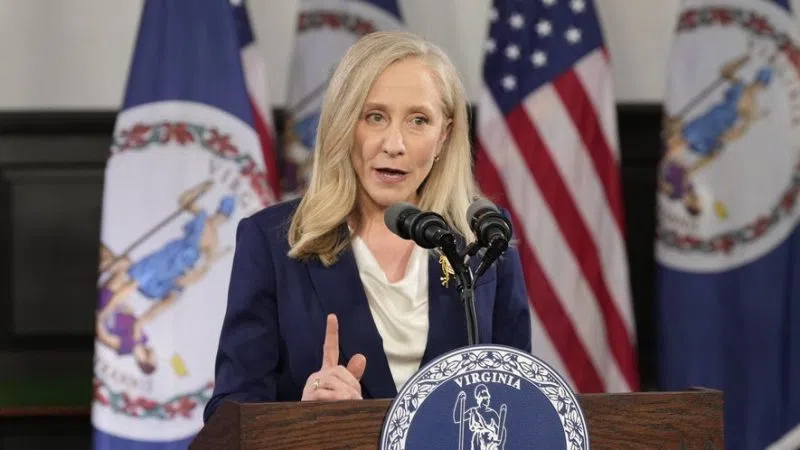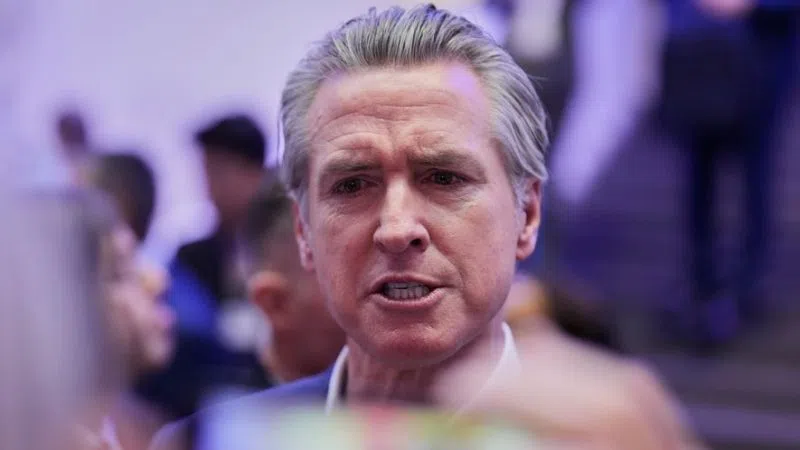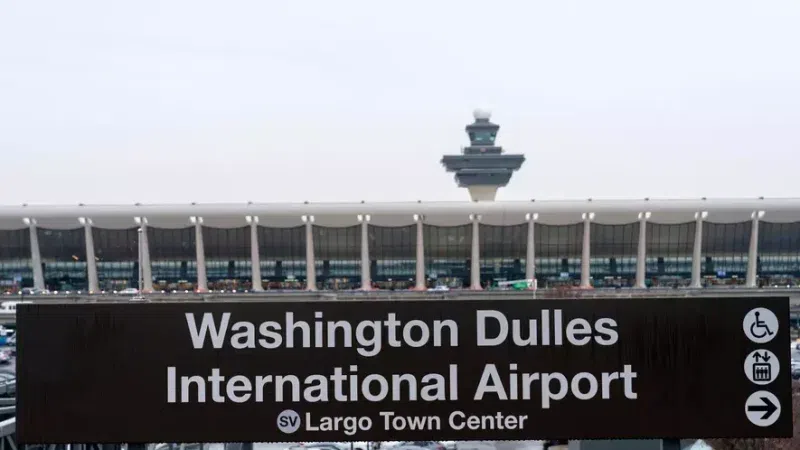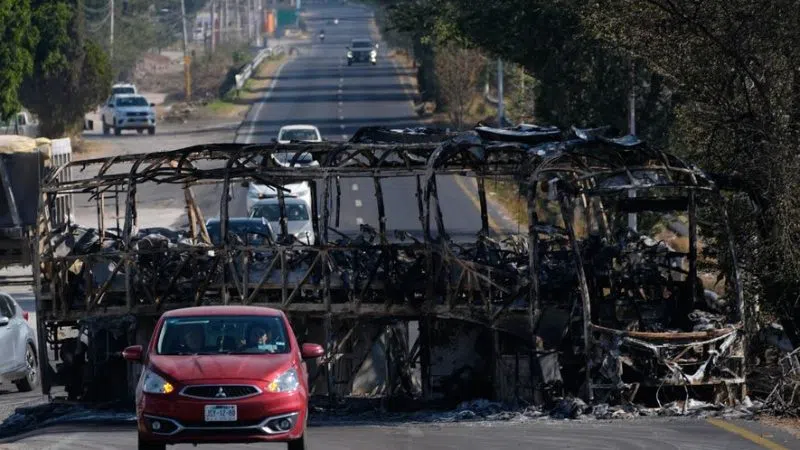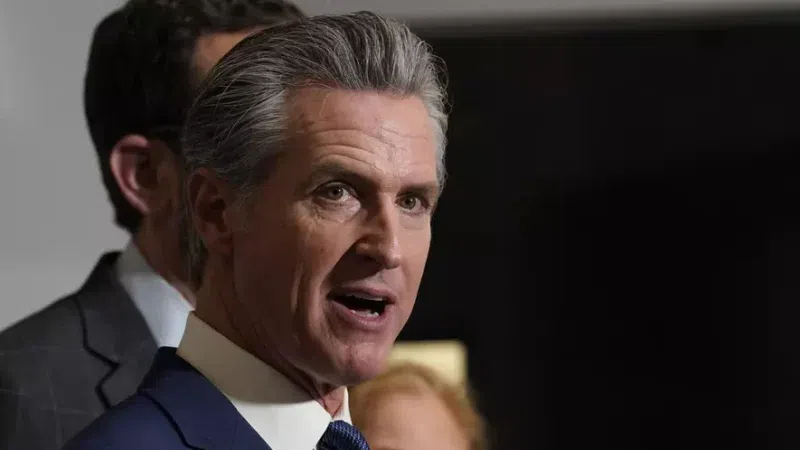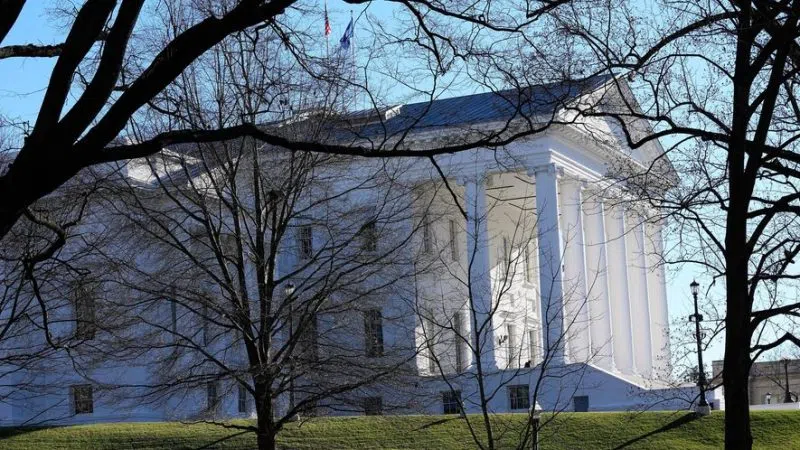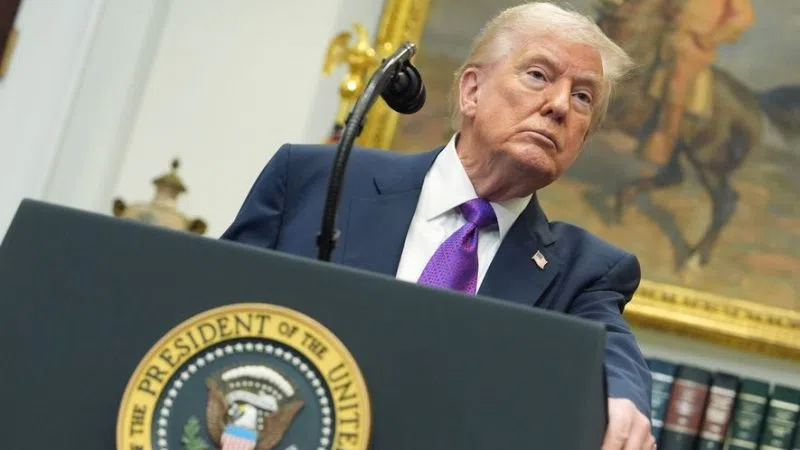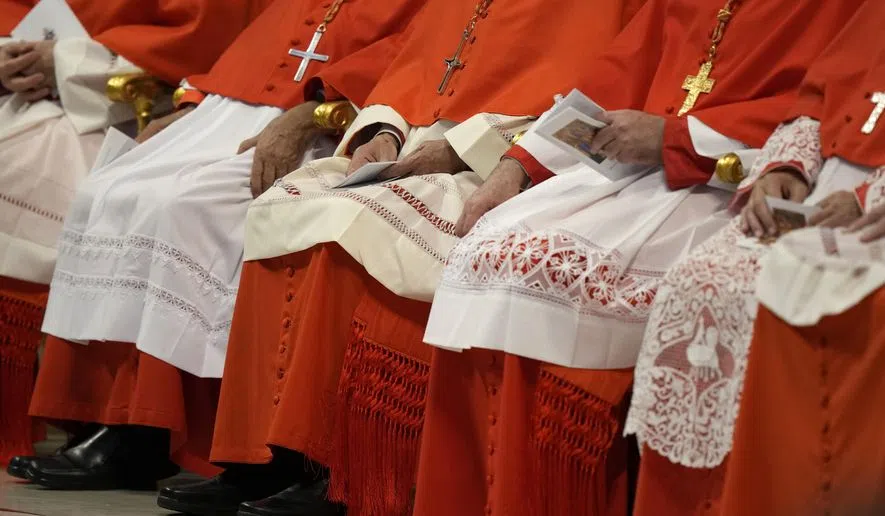
Emma Ayers | May 6, 2025
(The Washington Times) — Many conservative U.S. Catholics hope the papal conclave convening Wednesday will elect a successor to Pope Francis who is more focused on tradition and doctrine, church observers say.
As the successor to traditionalist Pope Benedict XVI in 2013, Francis embarked on a papacy that many characterized as reformist, with much attention given to social justice, inclusivity and ecumenism. Conservative Catholics, particularly those in the U.S., see the conclave as an opportunity to return the church to its roots and clarity, observers say.
“There was a deep sense that in Pope Benedict, they had an ally, particularly for the old Latin Mass,” Sarah Riccardi-Swartz, assistant professor of religion and anthropology at Northeastern University, told The Washington Times. “And with Pope Francis, that seemed to go away. That was a point of not just contention but real sorrow for a lot of traditionalists.”
Francis’ preference for tone and engagement over theological precision and tradition frustrated Catholics who looked to Rome for moral clarity, Ms. Riccardi-Swartz said.
Conservative backlash against Francis’ papacy has been fiercest in the U.S., which is steeped in the Puritanism of the first Colonists, said Kurt Martens, professor of canon law at the Catholic University of America.
“It’s almost as polarized in the church as it is in our politics,” Mr. Martens told The Times. “Some have speculated that it’s due to Protestant influence on American Catholicism.”
One of Francis’ sharpest traditionalist critics, Father Gerald Murray, a canon lawyer and priest in the Archdiocese of New York, insisted that the Catholic Church has become woke.
“Do we want to continue in a basically, sad to say, woke direction in the Catholic Church?” Father Murray asked in an appearance on Fox News after the pontiff’s death last month. “Or do we want to return to an affirmation of the faith based on what the apostles handed down?”
On Wednesday, 133 cardinals will sequester themselves in the Sistine Chapel in Vatican City to choose a successor to Pope Francis, who died April 21 of a stroke after suffering from respiratory issues. Many of the cardinals were elevated by Francis, who took steps to limit the Latin Mass and other traditions.
The traditional Latin Mass is a touchstone among conservatives. A 2021 survey by Crisis Magazine reported a 71% increase in attendance at traditional Latin Masses across U.S. parishes over 30 months. The growth is notable among younger Catholics seeking a return to traditional practices.
Throughout his papacy, Francis softened the church’s public posture on contested moral issues without formally changing doctrine. Observers say he emphasized feelings over absolutes, offering gestures rather than guardrails.
Conservative columnist Andrew Napolitano, a Catholic former judge, named Francis “the worst pope in history.” In a column last month for The Washington Times, he accused Francis of “watering down church teachings on marriage, sexuality and confession.”
Francis, the first Jesuit pontiff, faced pointed opposition to his comments on homosexuality. “Who am I to judge?” he asked in 2013. He repeatedly encouraged pastoral care over condemnation, approved blessings for same-sex couples under certain conditions, and met openly with LGBTQ groups.
“He attacked long-standing theology, universal liturgy and Thomistic natural law when his principal job was to preserve them,” Mr. Napolitano wrote. “He even questioned the concept of sin.”
Francis alienated some conservatives through personnel shifts. He removed traditionalist and openly critical Cardinal Raymond Burke from key roles, urged American bishops against doctrinal rigidity, and elevated “progressives” focused on climate change and migration within the magisterium.
Catholic columnist Ross Douthat, writing last month in The New York Times, said Francis ruled with “a paradoxical mix of autocracy and ambiguity,” using papal power to suppress conservative dissent while allegedly celebrating dialogue.
“He used his power not to decentralize but to police and suppress deviations from his authority — except that this time the targets were dissenting conservatives and traditionalists,” Mr. Douthat wrote.
That shift, he said, estranged “the last faction that really believed in the authority of Rome.” Francis may have expanded the church’s reach, but he weakened its voice, Mr. Douthat wrote.
Conservatives’ frustration with Francis became especially inflamed in 2021 when he restricted the Latin Mass, reversing Benedict’s broad permissions. The Vatican framed the change as a move toward liturgical unity, yet for many American Catholics, it felt like a targeted rejection of reverence, not rebellion.
“The papacy has acquired an imperial reach but has become less and less able to offer the kind of basic clarity that Catholics are supposed to look to Rome to find,” Mr. Douthat wrote.
In the U.S., theological grievance met media polarization. Conservative platforms such as EWTN and CatholicVote offered alternative media to disillusioned faithful.
Steven Millies, director of the Bernardin Center at Catholic Theological Union, said this parallel ecosystem reshaped how many Catholics saw the church and Francis.
“In the last 20 years, EWTN has raised over a billion dollars,” Mr. Millies told The Washington Times. “What they’ve done is create a climate where a large segment of Catholics in the United States feel comfortable saying the pope is wrong about Catholicism and that some outside media organization is right.”
Francis’ diplomatic strategy on the world stage also deepened conservative concerns.
Francis’ 2018 pact with Beijing allowed communist China to influence bishop appointments, angering underground Catholics and Western allies. He declined to name Russia as the aggressor in Ukraine and avoided direct criticism of authoritarian regimes in Nicaragua and Venezuela.
Catholic intellectual George Weigel wrote in The Washington Post after the pope’s death that the Holy See had lost its voice as a moral global force under Francis.
“The Holy See has become a non-player in international affairs,” he wrote. He warned that Francis’ silence in the face of persecution had consequences “not just for persecuted believers abroad, but for the credibility of the Church as a voice for human dignity.”
Mr. Weigel also cited internal dysfunction — including vague synodal statements, financial opacity and a sidelining of clear theological voices — as evidence that Francis left the church “less transparent, less coherent, and less accountable.”
Francis’ supporters point out that he did not change doctrine. Instead, they say, he improved the perception of an ancient church meant to speak to the modern world.
“Pope Francis was revolutionary, and he wasn’t, in the sense that there was no doctrine he changed,” Mr. Martens said. “Some people want very clear doctrine: ‘This is what you can do, and this is what you cannot do.’ I get that. But life is not black and white, and I think Francis tried to make us understand that.”
Many conservative Catholics found that nuance disorienting. Some responded to Francis’ changes over the years by organizing: building Latin Mass communities, launching media outlets and rallying for a return to orthodoxy. Others broke off entirely and joined sedevacantist or independent groups that reject the post-Vatican II church.
These Catholics will struggle with the upcoming selection of any modern pope, said experts who spoke with The Times.
“There’s a critical lens against both American Catholicism, which many traditionalists see as far too progressive, and against the papacy itself,” Ms. Riccardi-Swartz said. She agreed that the media mischaracterized Francis. “Nothing is good enough. Nothing is traditional enough. Nothing is authentic enough.”
The papal conclave process will commence Wednesday with a special Mass at 10 a.m., followed by the cardinals’ procession into the Sistine Chapel. The voting cardinals will remain there until another pope has been chosen.
Modern conclaves have concluded within a few days. The elections of Pope Benedict in 2005 and Pope Francis in 2013 each lasted two days. Cardinal Gregorio Rosa Chavez of El Salvador, citing a general consensus among the cardinals, has predicted that the upcoming conclave will last a maximum of three days.
“It’s impossible to really predict who it will be,” Mr. Martens told The Times. “But I’ll bet you that when the new pope is there, some of the same people won’t be happy either. That’s what happens.”

